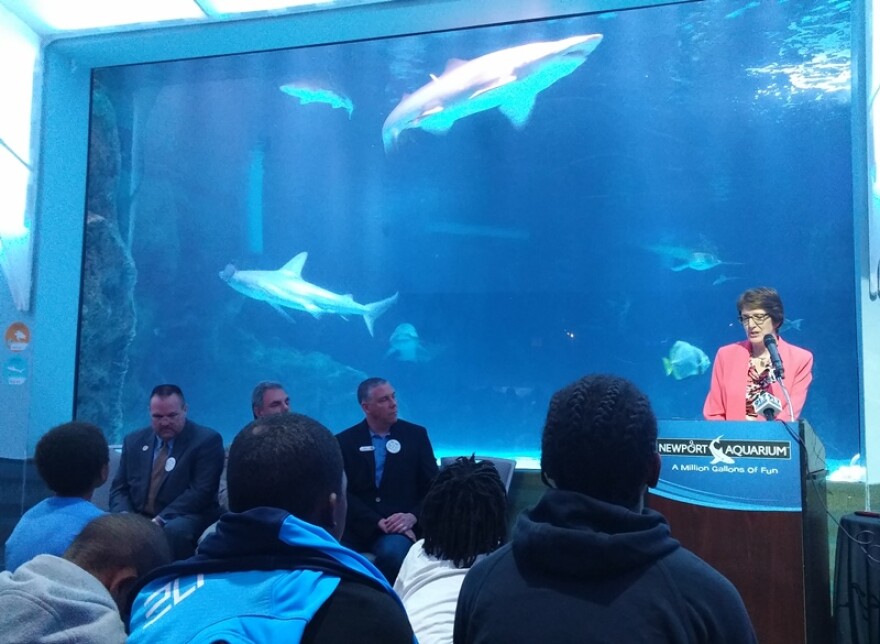The Association of Zoos and Aquariums is leading a new effort to save endangered and threatened species. The executive director of the organization, Chris Vehrs, announced the Saving Animals From Extinction, or SAFE, program Friday morning at the Newport Aquarium.
She says zoos and aquariums already spend about $160 million a year on conservation. “This initiative is going to bring new resources, new funding, and new focus specifically on ten endangered species.”
Vehrs says much of the initiative will be to develop more public support for conservation. That, she says, includes educating people whose practices may threaten animals.
She says they want to find ways to balance the needs of animals with the needs of people.
“It’s all about those stakeholders and talking about the threats, creating an action plan, and figuring out what the special niche of zoos and aquariums is.”
Vehrs says zoos and aquariums have particular knowledge on animals and habitats that can be used in the wild.
She says they're starting the effort focusing on ten species: sharks, Asian elephants, African penguins, black rhinos, cheetahs, gorillas, sea turtles, Western pond turtles, vaquitas (a type of dolphin), and whooping cranes. Ten new animals will be added to the list every year for the next decade.
She says some of their solutions may involve buying land, to create nature preserves. But in other cases, like the vaquita, they’ll work with people in Mexico. “In this case, it would have to be the fishermen as well, to see if there aren’t some different fishing methods that they could utilize that would not be as threatening to the vaquita.”
Vehrs says they’ve already started working on an action plan for the black-footed African penguin, which uses guano for nesting. “The guano has been harvested, so now we create artificial nests for them. But, the artificial nests in some areas… the animals get too hot.”
She says zoos and aquariums will be able to experiment to find a solution.
“It’s bringing those stakeholders together, some of whom are already working in the field to save these species.”



